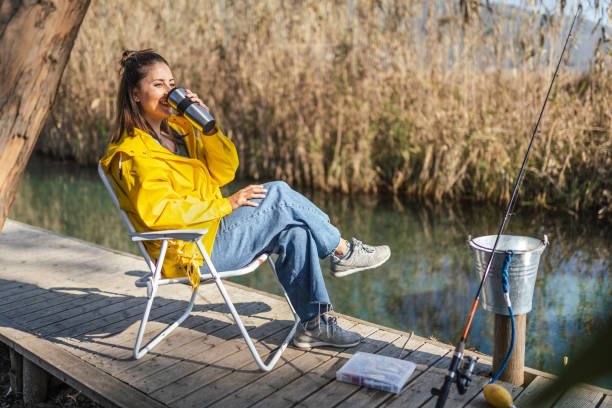Contents
- 1 Wilderness Camping checkList
- 1.1 1. Shelter and Sleeping Gear:
- 1.2 2. Clothing:
- 1.3 3. Food and Cooking Supplies:
- 1.4 4. Hydration:
- 1.5 5. Navigation and Safety:
- 1.6 6. Personal Items:
- 1.7 7. Emergency Gear:
- 1.8 8. Leave No Trace Considerations:
- 1.9 9. Comfort and Convenience:
- 1.10 10. Repair and Maintenance:
- 1.11 11. Entertainment and Relaxation:
- 1.12 12. Personal Hygiene:
- 1.13 13. Optional Extras:
- 1.14 14. Miscellaneous:
- 1.15 15. Remember:
- 2 Conclusion
- 3 FAQ
- 3.0.1 What gear do I need for backcountry camping?
- 3.0.2 How do I prepare for backcountry camping?
- 3.0.3 What should I do in case of an emergency?
- 3.0.4 How can I minimize my impact on the environment while camping?
- 3.0.5 Is backcountry camping suitable for beginners?
- 3.0.6 Where can I find more information about backcountry camping?
Wilderness Camping checkList
1. Shelter and Sleeping Gear:
-
- Tent
-
- Sleeping bag appropriate for the expected temperature
-
- Sleeping pad or mattress for insulation and comfort
-
- Groundsheet or tarp to protect the tent floor
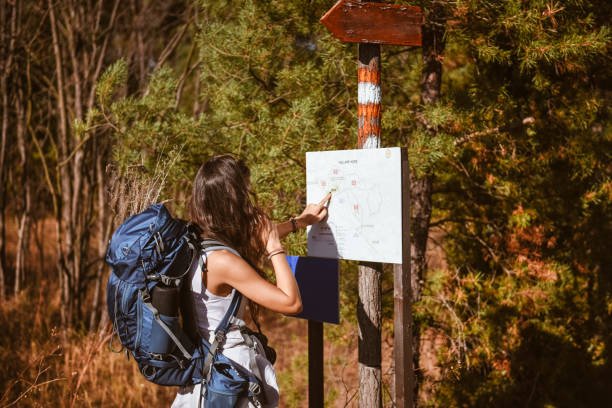
2. Clothing:
-
- Moisture-wicking base layers
-
- Insulating layers (fleece or down jacket)
-
- Waterproof and windproof jacket
-
- Quick-drying pants and shorts
-
- Sturdy hiking boots or shoes
-
- Hat for sun protection
-
- Gloves and warm hat for cold weather
3. Food and Cooking Supplies:
-
- Lightweight stove and fuel
-
- Cooking pot or pan
-
- Utensils (spork, knife, etc.)
-
- Food for meals (dehydrated or lightweight options recommended)
-
- Snacks for energy (nuts, trail mix, energy bars)
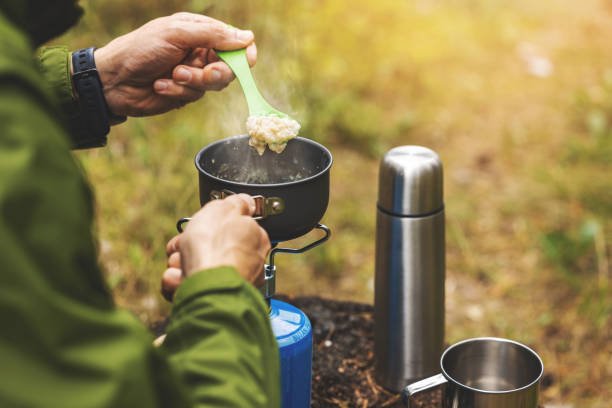
4. Hydration:
-
- Water bottles or hydration reservoir
-
- Water purification/filter system
-
- Electrolyte tablets or drink mix for replenishing fluids
5. Navigation and Safety:
-
- Map of the area
-
- Compass
-
- GPS device or smartphone with GPS app
-
- Whistle
-
- Headlamp or flashlight with extra batteries
-
- First aid kit with essentials like bandages, antiseptic wipes, pain relievers, etc.
-
- Multi-tool or knife
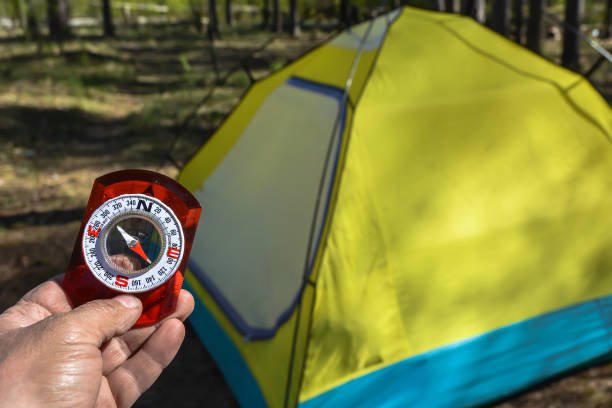
6. Personal Items:
-
- Sunscreen
-
- Insect repellent
-
- Toilet paper and trowel for digging a cat hole
-
- Biodegradable soap for washing dishes and personal hygiene
-
- Hand sanitizer
- Sunglasses
Also Read: backcountry camping for beginners
7. Emergency Gear:
-
- Emergency shelter (space blanket or bivy sack)
-
- Fire-starting supplies (waterproof matches, lighter, fire starter)
-
- Signal mirror or whistle for attracting attention
-
- Personal locator beacon (PLB) or satellite messenger device
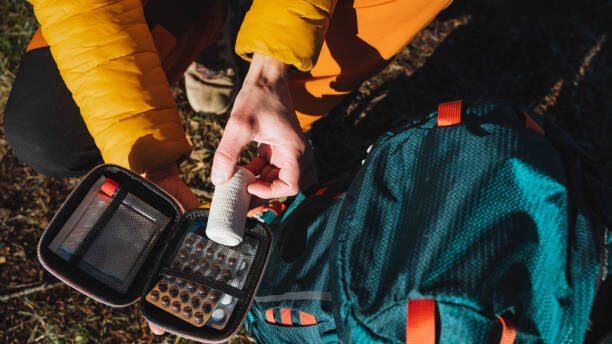
8. Leave No Trace Considerations:
-
- Trash bags for packing out waste
-
- Portable ashtray for cigarette butts
-
- Respect wildlife and their habitats by keeping a safe distance and not feeding them
-
- Minimize campfire impacts by using established fire rings or using a camping stove instead
9. Comfort and Convenience:
-
- Camp pillow or stuff sack filled with soft clothes for a makeshift pillow
-
- Camp towel or microfiber towel for bathing and cleaning
-
- Camp shoes or sandals for lounging around the campsite
-
- Portable camping chair or lightweight stool for comfortable seating
-
- Portable camping table for cooking and dining convenience

10. Repair and Maintenance:
-
- Duct tape for quick repairs on gear and equipment
-
- Repair kit for tent, sleeping pad, and other camping gear
-
- Spare tent stakes and guy lines for securing your tent in windy conditions
-
- Multi-purpose tool or knife for various tasks and emergencies
11. Entertainment and Relaxation:
-
- Deck of cards, travel-sized board games, or other entertainment options
-
- Book or e-reader for leisure reading during downtime
-
- Musical instruments such as a lightweight ukulele or harmonica for campfire entertainment
-
- Binoculars for birdwatching or wildlife spotting
12. Personal Hygiene:
-
- Biodegradable soap for washing dishes and personal hygiene
-
- Toothbrush, toothpaste, and dental floss for oral hygiene
-
- Wet wipes or biodegradable baby wipes for freshening up
-
- Hand sanitizer for maintaining hand hygiene
-
- Menstrual products for feminine hygiene needs
13. Optional Extras:
-
- Camp chair or lightweight stool
-
- Camera or smartphone for capturing memories
-
- Book or journal for downtime entertainment
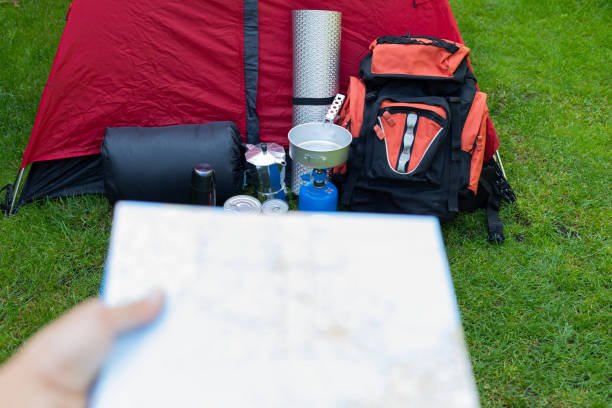
14. Miscellaneous:
-
- Ziplock bags or waterproof dry bags for organizing and waterproofing items
-
- Paracord or utility rope for hanging food bags, setting up a clothesline, or other uses
-
- Journal and pen for recording memories and observations
-
- Lightweight backpacking pillow for added comfort while sleeping
- Spare batteries for headlamp, flashlight, and other battery-powered devices
15. Remember:
-
- Pack according to the weather conditions and terrain of your destination.
-
- Distribute weight evenly in your backpack to ensure comfort while hiking.
-
- Always practice Leave No Trace principles to minimize your impact on the environment.
- Double-check your gear and supplies before heading out to ensure nothing essential is forgotten.
Also Read: Backpacking Camping Challenges
Conclusion
With careful planning and packing of essential gear, wilderness camping can offer an unforgettable outdoor experience. Prioritizing safety, comfort, and preparedness ensures a successful trip into the backcountry. By following the packing list and staying aware of potential challenges, campers can embark on their adventure with confidence, ready to embrace the beauty and tranquility of nature. Remember to leave no trace, respect wildlife, and enjoy the journey responsibly.
FAQ
What gear do I need for backcountry camping?
Essential gear includes a tent, sleeping bag, sleeping pad, navigation tools, first aid kit, food and water, clothing layers, and emergency communication devices.
How do I prepare for backcountry camping?
Preparation involves researching your destination, planning your route, checking weather forecasts, packing essential gear, and acquiring necessary skills such as navigation and wilderness first aid.
What should I do in case of an emergency?
In case of emergency, stay calm and assess the situation. Use your emergency communication device to call for help if necessary. Follow any first aid protocols and prioritize safety.
How can I minimize my impact on the environment while camping?
Practice Leave No Trace principles by packing out all trash, minimizing campfire impacts, respecting wildlife, and staying on designated trails.
Is backcountry camping suitable for beginners?
With proper preparation and guidance, backcountry camping can be enjoyable for beginners. Starting with shorter trips and learning essential skills can help build confidence and safety awareness.
Where can I find more information about backcountry camping?
Resources such as outdoor guides, websites, and forums offer valuable information on backcountry camping tips, gear recommendations, and trip planning advice.

